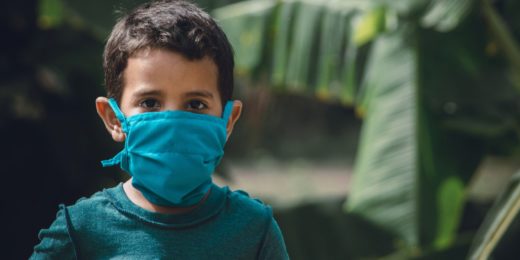Stanford Medicine experts have acknowledged that the stress teens are experiencing as a result of school closures and isolation from their friends during the COVID-19 pandemic can lead to depression and anxiety.
Now, a group of Stanford psychologists have published research showing that the ability of teens to weather the pandemic is closely tied to the strength of their executive function abilities -- or the mental skills we use to navigate daily life.
"Our findings suggest that executive functioning in our brain plays a key role in protecting against risk factors that worsen symptoms of depression and anxiety during stressful, uncertain times," Rajpreet Chahal, PhD, a postdoctoral fellow in the Stanford Department of Psychology said in a recent Stanford News Service story about the research.
"These results are very relevant for teenagers, as well as people of all ages, in this era of COVID-19," said Chahal, the lead author of a study recently published in the journal Biological Psychiatry: Cognitive Neuroscience and Neuroimaging.
Protecting against crisis-caused distress
The research adds to a growing understanding of how strengthening the executive control networks -- which are mostly found in the brain's frontal lobe and support cognitive processes that include regulating emotions and navigating new challenges -- can fortify people against psychological problems in times of stress.
"These findings raise the question of whether young people would benefit from executive function training," said Ian Gotlib, PhD, the David Starr Jordan Professor in the Department of Psychology at the School of Humanities and Sciences.
"It's possible that such a targeted intervention would reduce the chances of experiencing psychopathologies like depression and anxiety in the face of stress, like a pandemic, and especially for higher-risk teens going through early puberty," said Gotlib, the study's senior author.
The study examined brain scans of American teenagers taken five years ago and self- and parent-reported surveys about mental wellbeing and progression through puberty -- before and after the pandemic lockdown in March. The focus was on a sample of adolescents who, even in normal times, are particularly prone to stress: those who entered puberty earlier than their peers.
The researchers found that teenagers who showed greater connectivity, or interconnectedness, in the executive control network regions of the brain were less likely to experience pandemic-related depression and anxiety, even if they started puberty early.
Tracking the mental toll of stress on teens
The 200 or so Bay Area teenagers in the study were recruited between 2013 and 2016. Gotlib's lab has followed them to track how early-life stress affects psychology and neurodevelopment, including brain function and structure. One of the main motivations behind the work is to learn more about the increasing rates of depression and suicidal behaviors among adolescents.
At the beginning of the study, the teen received brain scans using functional magnetic resonance imaging that reveals areas of greater blood flow within the brain, indicating the activation of those brain regions. Activity increases in the regions that regulate executive function when people perform cognitive control tasks that require, for instance, suppressing an automatic response, paying or shifting attention and planning ahead.
In some people, those brain regions activate more closely in time together. Chahal and Gotlib had been exploring the influence of this synchronization -- known as coherence -- in typically-developing teens and in those who mature faster than their peers. Teens who go into puberty early are more prone to anxiety and depression, in part, because they feel different than their peers, and because hormones can contribute to psychological difficulties.
The research was halted at the onset of COVID-19, but Gotlib's group recognized that a rare gobal pandemic offered a "powerful way to test some of our hypotheses" about puberty and mental health, Chahal said.
"An important takeaway is that we can start to look at predictors of mental health during COVID in susceptible, vulnerable children and adolescents," said Gotlib. "We're just starting to get a sense of the factors that increase not only risk, but also resilience, to the effects of the pandemic."
Image by jiris






